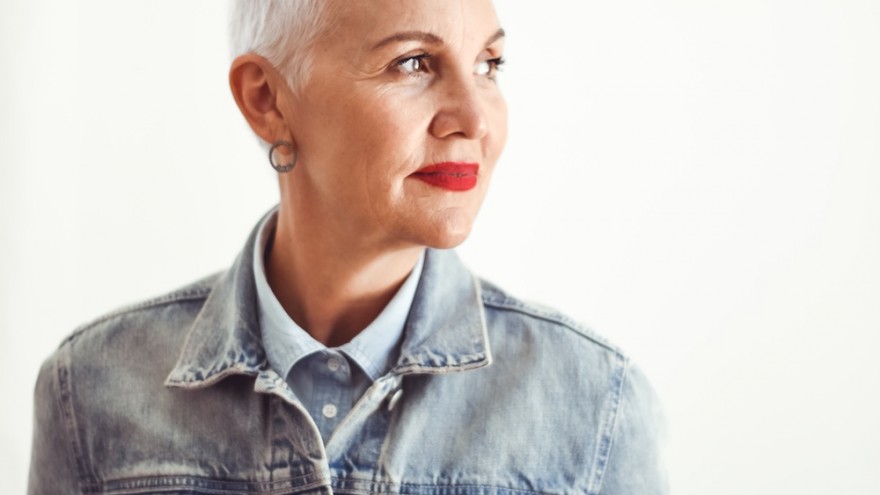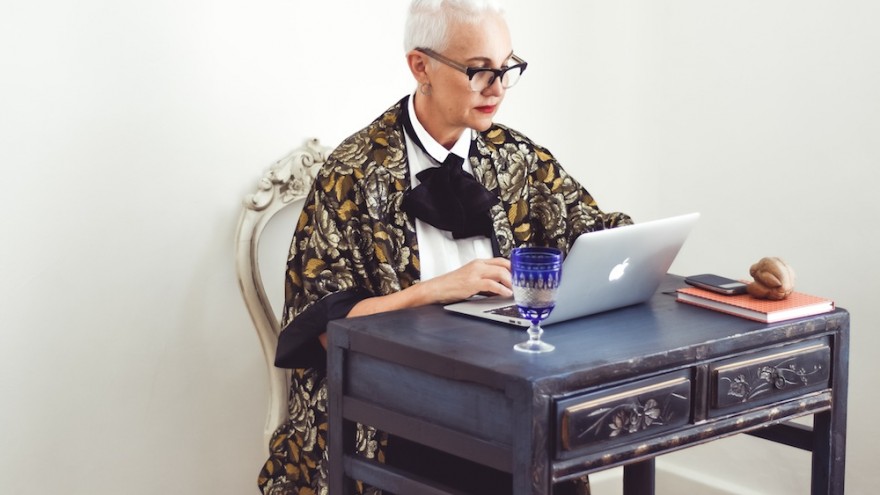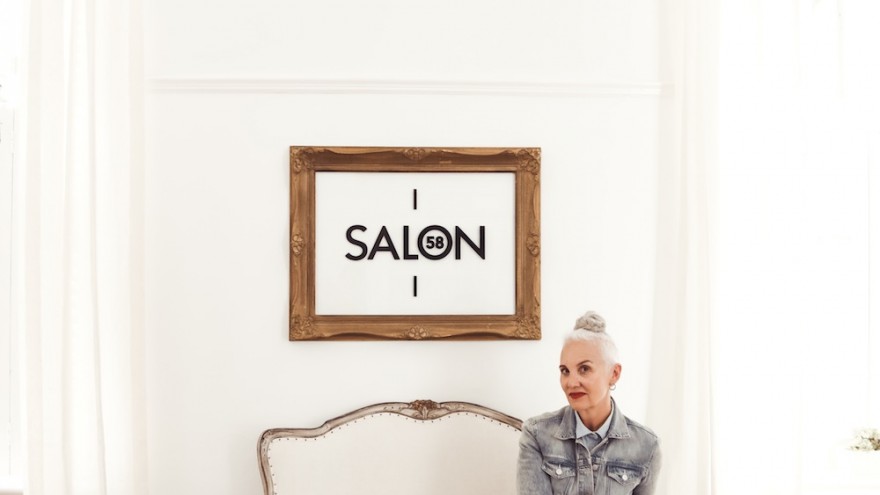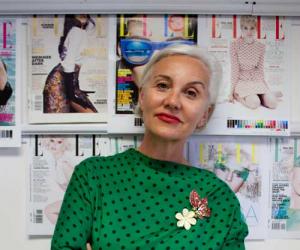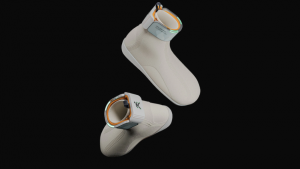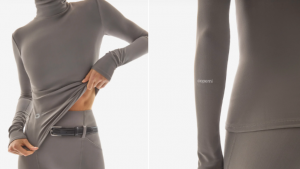After more than seven years as editor of ELLE South Africa, Jackie Burger is respected as a prominent figure in local fashion, design and entrepreneurship. Most recently Burger launched Salon 58, based on the concept of the original French salons of the 17th and 18th centuries. Her salon, a space for exchanging ideas and showcasing the creativity of local industries, is positioned to address the need for more meaningful consumer experiences amongst an industry of mass-marketed brands.
Drawing on her wealth of knowledge and experience in retail and fashion, we asked Burger to shed some light on the current retail landscape under the pressures of an increasingly oversaturated market and consumer fatigue.
Talk us through your career arc from retail to publishing to this new platform.
It started with a position in fashion retail in my early twenties – in my PR capacity I began cultivating business relationships with the media to use selected product in editorial content. I made it my business to understand each publication’s brand profile to pre-edit appropriate editorial samples. I also initiated special “working wardrobe” sessions with our customers to give them a more informative engagement with styling and fashion trends. I moved through the ranks and concluded my retail cycle as the brand manager in charge of all marketing and communication aspects of all the brands housed under the Foschini umbrella.
My next opportunity was in publishing as a consulting fashion editor for Fairlady. Part of my role was to bring commerce to the fashion portfolio, which was achieved with the roll-out of seasonal fashion and beauty supplements; to create a differentiable fashion narrative for the reader by focussing on a balance between inspirational and functional fashion content; and to reinvent the (Fairlady) SA Fashion Awards, which was one of the most pretigious events at the time and a truly phenomenal platform recognising and rewarding established and new design talent in South Africa. Next followed the appointment as ELLE SA fashion director and less than two years later the position as editor, which I held for just over seven years.
How have you observed the local fashion industry change over this time – from a design and a marketing/retail perspective?
The growth and change is, firstly, aligned to global trends reflecting a greater and faster consumption of fashion and trends triggered by aggressive marketing campaigns across multimedia platforms.
On a local retail front, the offering to the end-user has expanded vastly with the influx of niche and commercial international brands with big advertising budgets. Similarly, we see local retail brands exploring new market growth opportunities not just in Africa but also Australia. Online shopping is becoming a strong contender. This adds pressure to our homegrown designer brands that are still battling issues such as access to relevant and qualitative textiles, manufacturing and distribution functions, as well as a lack of a more appreciative consumer base supporting a local design economy.
How do you think marketing methods have changed in response to an increasingly saturated retail space?
The rise of more articulated platforms, such as fringe publications and dedicated social media activations with a strong point of view, have a strong effect. Also, experiential platforms ranging from popups to event-driven shopping platforms.
What was your primary reason for starting Salon 58?
My business venture extends beyond a primary reason or core business objective.
I wanted to create a value-based business idea that embraces principles of collaboration, creativity, community, conversation and nurturing, operating in the industry that I treasure and sharing my wealth of experience and commitment to the industry.
At the launch of Salon 58, there were displays of various designers, including a fashion show by Juanita Kotze of KØ Productions. Does the salon partly act as a marketing platform for these brands?
I find the concept of marketing in modern-day application too aggressive and aim to create a community and space of appreciation; an opportunity to meet the designer where possible and for the Salon audience to experience and engage with the designer brands in an expertise-supported environment.
Tell us about some of the other brands and designers you’ve included in your events?
Simon and Mary, PICHULIK, Nick Coutts, Black Coffee, Drotsky, Lara Kawakovski, Klûk CGDT, BlomBoy, Schoon De Companje, Spree.co.za.
How do you choose the brands to be involved?
Each Salon 58 soirée has a theme edited into content across fashion, beauty and lifestyle sections, similar to a magazine. We translate the content into experiential conversations and installations for our audience.
The selection is based on different parameters ranging from innovation, accessibility, compatibility with the aim to excite our audience and afford them a sensory and curated experience that is considered, informative and sometimes probing.
Why do you think curated experiences are more important for brands as touchpoints with the consumer than ever before?
We are quite fatigued by the relentless marketing messages and ever-changing imagery numbing our senses – and perhaps a yearning for a qualitative and authentic experience. At Salon 58, we strive to build a meaningful and emotional relationship between the brand, the collaborators and our audience.
Since its inception, the content of the traditional salon has been the subject of much debate. Some say it was a place for intellectual types to exchange ideas and others say it was a place for aristocrats to engage in purely egalitarian notions. How would you defend Salon 58 being perceived as an elitest gossip parlour?
I don’t need to “defend” anything . My inspiration is based on some of the core values of the original salons – a place of gathering, a place of conversation and an appreciation for arts and culture.
Salons are coventionally hosted by an inspiring host. Do you consider this your role at the Salon gatherings?
I am the hostess, yes, and my aim is to make the audience feel welcome and to ensure that we create a beautiful experience for them. But it extends way beyond my ego – it is the culmination of creative collaborations and the generosity of the entrepreneurial spirit that reigns. It is a collective and not a singular platform.
What do local fashion/design brands need to do differently to survive in South Africa right now?
I cannot stress enough the importance of content marketing, articulated brand values and the power of an aligned PR company that lives your brand and is an expert at content management across multimedia platforms, eventing and relationship building.
What do you find most exciting about where we are in SA right now with regards to fashion?
We are more confident about our aesthetic, smarter in innovative business practices and incredibly mobile.
What do you see us offering the world that is most unique?
We are already unique – we need to tell our story with pride and conviction and overcome some of the politics that curb our spirit of Ubuntu. To quote an African proverb:
A single bracelet does not jingle.

